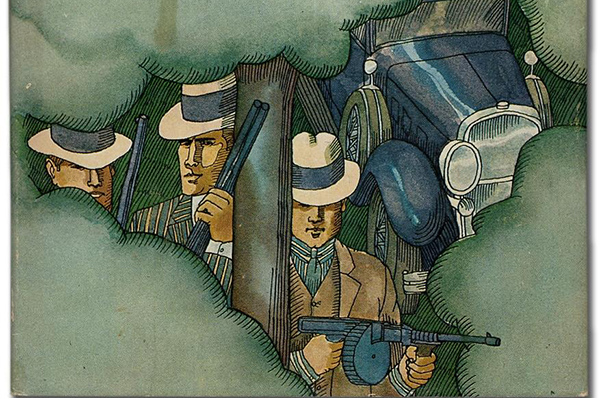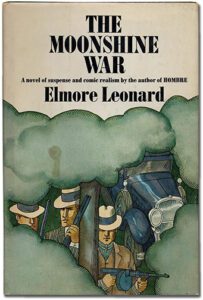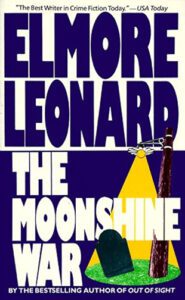Home »

The Moonshine War’s purity and energy keep it modern
Book Review
By Derryll White
Leonard, Elmore (1969). The Moonshine War.
The United States has definitely done some crazy things from Trump all the way back to Jefferson. Perhaps one of the craziest was the Prohibition Act of 1919. It set America up for more lawlessness than it had ever bargained for.
 In the rural areas peace was maintained by sheriffs like Mr. Baylor of Marlett, Kentucky. He knew who made moonshine, who it was sold to, and how to keep law and order while letting the citizens drink a little. He also knew that the stills assisted in getting rural families through some very hard financial times.
In the rural areas peace was maintained by sheriffs like Mr. Baylor of Marlett, Kentucky. He knew who made moonshine, who it was sold to, and how to keep law and order while letting the citizens drink a little. He also knew that the stills assisted in getting rural families through some very hard financial times.
Sam Martin is a dangerous man; dangerous because he keeps his own counsel and stays well clear of others. He has a hidden treasure everyone wants and he isn’t interested in sharing.
Elmore Leonard keeps the reader totally engaged with new minor plot lines, enticing new characters, lechery and greed. There is no half-way with bad, dangerous Sam Martin and there is no half-way with Elmore Leonard.
Start ‘The Moonshine War’ and you are going to finish it. Without question the author is the best raw talent to follow from Dashiell Hammett and Raymond Chandler.
‘The Moonshine War’ might be old but its purity and energy keep it very modern.
Excerpts from the novel:
WHISKEY – People did crazy things where whiskey was concerned. It being against the law to drink wasn’t going to stop anybody. They’d fight and shoot each other and go to prison and die for it, so there was no sense in wondering about Mr. Baylor and Son Martin.
PROHIBITION – “Well, let me put it this way,” Mr. Baylor said. “People around here have built their stills and drunk whiskey for more than a hundred years. They believe if a man plows the ground and sows it and raised corn, it’s not the place of another man to tell him he can eat it but he can’t drink it. That’s what we think of your Prohibition law.”
 – Derryll White once wrote books but now chooses to read and write about them. When not reading he writes history for the web at www.basininstitute.org.
– Derryll White once wrote books but now chooses to read and write about them. When not reading he writes history for the web at www.basininstitute.org.








